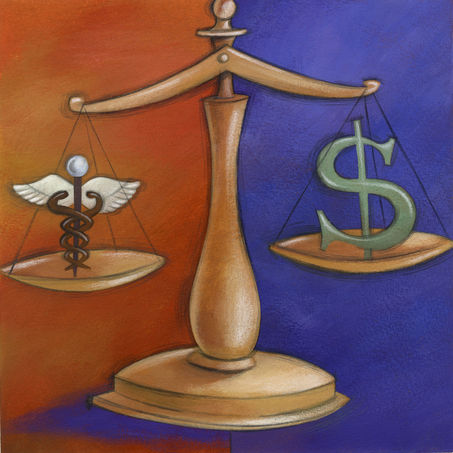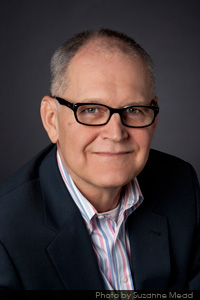Submitted by Wendell Potter on
A little more than a year ago, on the day after the GOP regained control of the House of Representatives, Speaker-to-be John Boehner said one of the first orders of business after he took charge would be the repeal of health care reform.
 "I believe that the health care bill that was enacted by the current Congress will kill jobs in America, ruin the best health care system in the world, and bankrupt our country," Boehner said at a press conference. "That means we have to do everything we can to try to repeal this bill and replace it with common sense reforms to bring down the cost of health care."
"I believe that the health care bill that was enacted by the current Congress will kill jobs in America, ruin the best health care system in the world, and bankrupt our country," Boehner said at a press conference. "That means we have to do everything we can to try to repeal this bill and replace it with common sense reforms to bring down the cost of health care."
Boehner is not the first nor the only Republican to try to make us believe that the U.S. has the world's best health care system and that we're bound to lose that distinction because of Obamacare. I've heard GOP candidates for president say the same thing in recent months, charging that we need to get rid of a President who clearly is trying to fix something that doesn't need fixing, something that isn't broken in the first place.
Well, those guys need to get out more. Out of the country, in fact. They need to travel to at least one of the many countries that are doing a much better job of delivering high quality care at much lower costs than the good old USA.
If they're not interested in a fact-finding mission abroad, then perhaps they might take a look at two recent reports before they make any other statements about the quality of American health care.
Last week, the 34-nation Organization for Economic Cooperation and Development (OECD) released the results of its most recent study of the health care systems in its member countries, including the U.S., plus six others, for a total of 40. And those results are illuminating.
The Most Expensive, But Not the Best
If Boehner and his fellow Republicans had characterized the U.S. system as the most expensive in the world, they would have been right on target. But they would have been way off base by calling it the best.
The OECD report is just the most recent evidence that Americans are not getting nearly as much bang for the health care buck as citizens of most other developed countries -- and even some countries in the developing world.
The OECD found that the United States spends two-and-a-half times more on health care per person than the OECD average. The U.S. even spends more than twice as much as France, which many experts contend has one of the best health care systems on the planet.
The average expenditure per person in the U.S. is $7,960, a third more than in Norway, the second highest. The OECD average, by comparison, is just $3,233. (It is $3,873 in France.)
Here are some reasons why: Hospital spending is 60 percent higher than the average of five other relatively expensive countries (Switzerland, Canada, Germany, France and Japan); spending on pharmaceuticals and medical goods is much higher here than any of the other countries; and administrative costs are more than two-and-a-half times the average of the others.
It was not all bad news for us. We're number one in the five-year breast cancer survival rate and number two (behind Japan) in the five-year colorectal cancer survival rate. We're also number one in costly knee replacements and number two (again behind Japan) in the number of MRI units per million people.
But we rank 29th in the number of hospital beds per person and 29th in the average length of a stay in the hospital. And we have high rates of avoidable hospital admissions for people with asthma, lung disease, diabetes, hypertension and other common illnesses.
U.S. Health Care Lags Way Behind Other Countries
When it comes to access to physicians, we're also near the bottom of the pack. We rank 26th in the number of physicians, especially primary care or family doctors, per 1,000 people.
In terms of life expectancy, we rank 28th, just behind Chile. The average age of death in the U.S. is 78.2, well below the average of 79.5 years in the other OCED countries.
The OECD study backs up the results of a report released by the Commonwealth Fund in October, which showed that the U.S. is actually losing ground to other countries in assuring that its citizens have equal access to affordable, efficient care.
 The Commonwealth Fund "scorecard" found that the U.S. is failing to keep up with gains in health outcomes made by other nations. We now rank last out of 16 countries in the Commonwealth Fund study when it comes to deaths that could have been prevented by timely and effective medical care.
The Commonwealth Fund "scorecard" found that the U.S. is failing to keep up with gains in health outcomes made by other nations. We now rank last out of 16 countries in the Commonwealth Fund study when it comes to deaths that could have been prevented by timely and effective medical care.
A big reason for the dismal results is the fact that more and more Americans are falling into the ranks of the uninsured and underinsured. As of last year, according to the Commonwealth Fund, 81 million adults in the U.S. -- 44 percent of all adults under age 65 -- were either uninsured or underinsured at some point during the year, up from 61 million as recently as 2003.
So the next time you hear a politician claim that the U.S. has the best health care system in the world, be aware that he or she is trying to get you to believe something that is demonstrably not true, undoubtedly for no reason other than to advance their political agenda. We deserve better -- in both rhetoric and results.

Comments
Dr. Jeffrey Cates replied on Permalink
Health Care vs Insurance
Dr. J. True replied on Permalink
Outcome based medicine
Ellen Shaffer replied on Permalink
Stark choices - Affordable Care Act or right wing market reforms